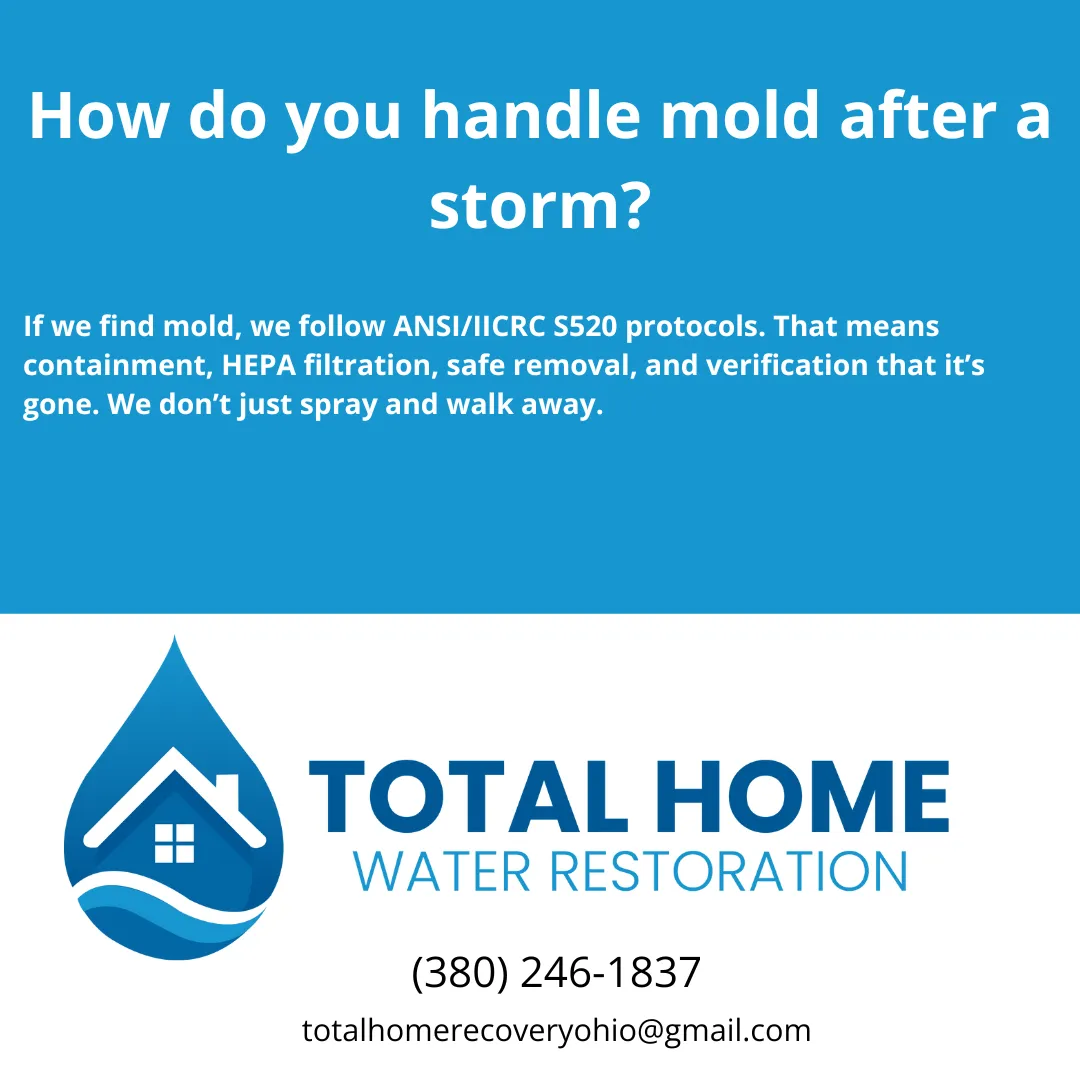
How do you handle mold after a storm?
How Do You Handle Mold After a Storm?
If you’ve had a flood, roof leak, or water seeping in after a storm, you might already be smelling that musty odor. That’s mold—and it can grow fast in Ohio’s humidity. At Total Home Water Restoration, here’s how we handle it:
We don’t just spray and walk away.
We follow the ANSI/IICRC S520 Standard for Professional Mold Remediation, and that means we do it right:
Here’s Our Process:
Containment:
We seal off the affected area so mold spores don’t spread through your home. Think zip walls, plastic sheeting, and negative air pressure.HEPA Filtration:
Air scrubbers with HEPA filters run constantly during remediation to clean the air and capture spores down to 0.3 microns.Safe Removal:
Moldy drywall, insulation, and other porous materials get removed—not “cleaned.” Anything that can be cleaned (like framing) is scrubbed with HEPA vacuums and EPA-registered antimicrobials.Post-Remediation Verification:
We double-check our work. Moisture meters confirm everything is dry. We visually inspect and, if needed, bring in a third-party IEP to test the air.
This process doesn’t just follow best practices—it follows science, backed by the IICRC S520 and EPA guidelines.
Why This Matters
Storm-damaged homes in Grove City, Columbus, and surrounding areas often have hidden mold in wall cavities, behind baseboards, or under flooring. If it’s not removed right, it will come back. And worse—it could impact your health.
We’ve seen it too many times:
A homeowner calls us after another company sprayed something, left, and weeks later the mold returned worse than before.
We won’t let that happen to you.
Call a Certified Mold Remediation Pro
Total Home Water Restoration is IICRC-certified in mold and water damage. We serve Grove City, Hilliard, Galloway, Dublin, Westerville, Worthington, Reynoldsburg, and nearby areas.
📍 4141 Hoover Rd, Grove City, OH 43123
📞 380-246-1837
We treat your home like it’s our own—and we fix it like we mean it.
